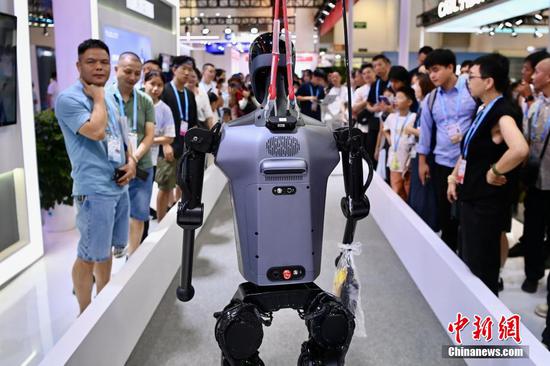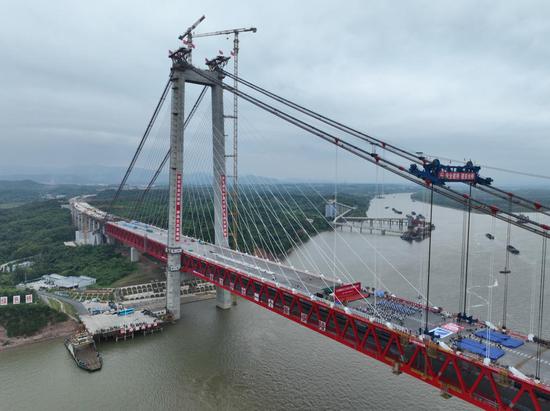Guangdong province, a key player in China's internet industry, is set to accelerate the development of critical technologies in cybersecurity, focusing on next-generation information technology and artificial intelligence, a senior official said on Sunday.
"We must strengthen our technological capabilities to safeguard cybersecurity and contribute to building a robust and secure cyber society," said Huang Kunming, Party chief of Guangdong, at the opening ceremony of China Cybersecurity Week in Guangzhou's Nansha district.
Huang emphasized the importance of cyber content management, urging efforts to combat online misinformation, cyberbullying and other digital threats to create a safer, more vibrant online environment. He also highlighted the need to prioritize personal information security and rigorously combat cybercrime.
China aims to reinforce its cybersecurity infrastructure and oversight systems, especially concerning artificial intelligence, following a resolution by the Communist Party of China Central Committee in July, which called for comprehensive reform to advance Chinese modernization.
Zhuang Rongwen, head of the Cyberspace Administration of China, stressed the importance of protecting critical information infrastructure and enhancing data security while fostering innovation in new technologies and applications.
China Cybersecurity Week, which is observed nationwide with Guangzhou as the main venue, includes participation from cities in the Greater Bay Area and, for the first time, delegations from Hong Kong and Macao. Activities throughout the week will include forums and events designed to raise public awareness about cybersecurity.
Ahead of this week's events, a cybersecurity expo was held Saturday in Guangzhou, showcasing innovations in technology, industry development and public education. Companies from the Greater Bay Area displayed achievements, including China Southern Power Grid Group's "Fei Yun" robot dog, which is equipped with advanced technologies for intelligent device inspections. The robot, deployed at a 220-kilovolt power station, has reduced manual inspections by more than 80 percent, according to the company.


















































 京公网安备 11010202009201号
京公网安备 11010202009201号